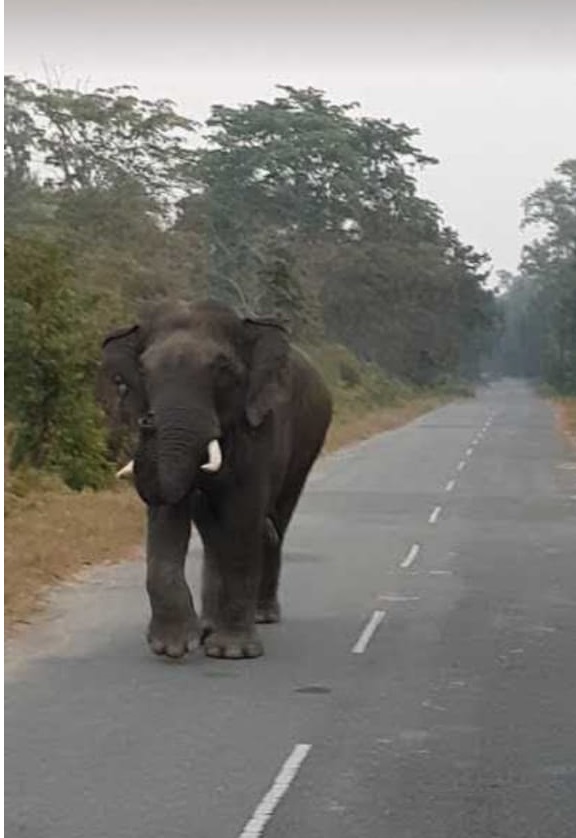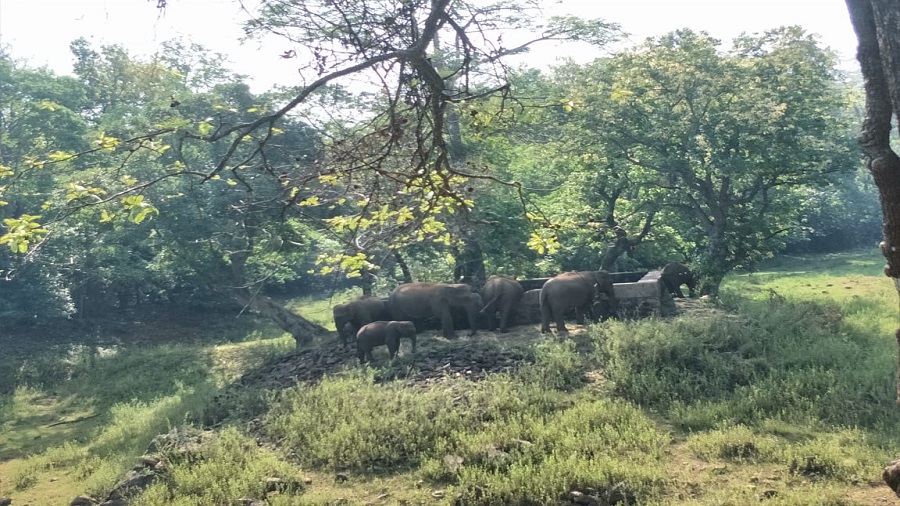A 4,000ft-long trench can well be the solution for preventing elephants from neighbouring Bengal slipping into the Chandil forest range in Seraikela-Kharsawan.
The hapless foresters of Chandil forest range, who are at their wit’s end when it comes to shepherding jumbos back to Bengal, have stuck to the idea of digging a trench along the Jharkhand-Bengal border.
Chandil forest range officer Ashok Kumar said the trench was the only option to restrict the elephants to Bengal jungles.
“To be honest, we are not able to prevent elephants coming to our forest range from Bengal. We had managed to drive away separate herds of 30 elephants to the neighbouring state some days back but 14 jumbos again forced their way into our forests late last night,” he added.
According to him, the 4,000ft long, 10ft deep and 8ft wide trench would be dug at Biyasiserum village along the Bengal border.
The trench is perhaps the only answer when to comes to stopping the elephants.
“We have to speak to the villagers as some part of the land along the border is raiyati and owned by the rurals. Some part is forest land,” the range officer said.
Kumar added that herds of elephants arrive in Chandil forest range from Ayodhya hills in the Purulia district of Bengal.

A tusker at the Chandil forest range on Wednesday. Telegraph picture
“The herds walk from the Ayodhya hills, pass through Bengal jungles and finally slip into Chandil. We have been trying very hard to drive them back to their home. Sometime we are successful and sometime not. It’s a tiring effort to say the least,” he said.
Pointing out that digging a trench along the border was extremely necessary, the range officer said the elephants are also damaging standing crops.
“The real problem will arise when the crops are harvested by the next month. Farmers will store the produce at their homes. This will attract the elephants and result in man-animal conflict. So a trench seems to be the only way out,” Kumar explained.
“We would be meeting in a day or two and try to explain to villagers the importance of digging a trench. After all, they are at the receiving end of the elephant menace,” Kumar emphasised.
Elephants damaged the home of Sudhir Pramanik at Ramchandarpur last month and also wiped out rice crop.
Another herd destroyed and devoured vegetables grown by Bhrigu Bhagat on Asanbani the same day.
Foresters get assistance from village youths for driving away herds of elephants. The forest patrol parties move in jeeps and keep the villagers armed with mashals (torches) and crackers.
The patrol remain busy throughout the night. However, the villagers don’t venture out of their homes for fear of elephants.
A forester said that the elephants usually don’t attack unless they are teased.
”Villagers tend to drive away elephants by throwing stones and coming close to the animals. We are lucky that the elephant herds from Bengal have not killed anyone but man-animal conflict can take place if villagers continue teasing the elephants,” he added.










